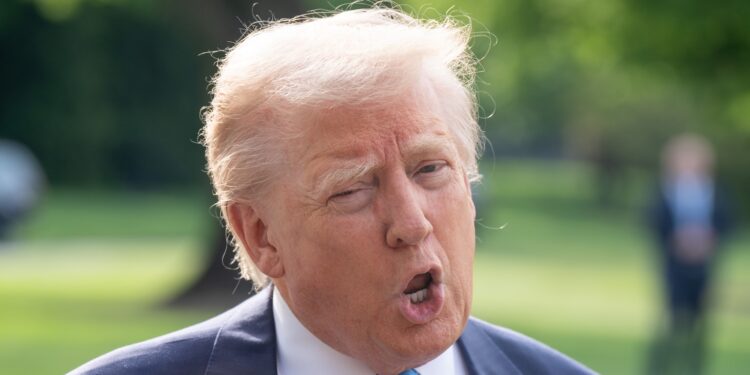Apple is usually known for its tech headlines—new products, smart services, and multi-billion-dollar quarterly figures. But now the Cupertino-based company is making waves for something entirely different: a potential 25 percent tariff on iPhones not manufactured in the US. The threat came directly from Donald Trump—and according to a report in the New York Times (NYT), it was less about economic policy and more about personal slight.
If you use an iPhone or simply want to know how closely companies like Apple are tied to political influence, this topic is relevant to you. What appears to be an economic move turns out, upon closer inspection, to be a personal conflict between Donald Trump and Apple CEO Tim Cook – triggered by a boisterous meeting in the Middle East.
Trump on Middle East trip – with tech elite, but without Tim Cook
Donald Trump recently undertook a high-profile trip to the United Arab Emirates, Qatar, and Saudi Arabia. Among them were prominent CEOs from Silicon Valley, including Jensen Huang of Nvidia and Sam Altman of OpenAI. One person was conspicuously absent: Tim Cook, CEO of Apple. According to the New York Times, Cook was invited but declined. This decision reportedly angered Trump. During the trip, he publicly mentioned Cook's absence several times. In a speech in Riyadh, he explicitly praised Huang and then added:
Tim Cook isn't here, but you are.
In Qatar, he told guests that he had “a small problem with Tim Cook,” and referred to Apple’s growing production activities in India.
Customs threat follows hours later
Shortly after these comments, the threat against Apple went online. Trump wrote that he had told Tim Cook some time ago that iPhones sold in the US must also be manufactured in the US. If Apple did not comply, a tariff of at least 25 percent would be imposed. The message concluded with a brief "Thank you for your attention to this matter." This announcement came as a surprise to Apple – as it did to Trump's own administration team. According to the NYT , the measure seemed less like a planned economic strategy and more like a personal retaliation. Back in April, Apple had narrowly avoided a 145 percent tariff on products imported from China. Now a new escalation threatens.
Trump's change of strategy towards Apple
During his first term in office, Tim Cook managed to keep Apple out of Trump's direct line of fire. Cook appeared at key meetings, demonstrated a willingness to compromise, and maintained a pragmatic relationship with the White House. He even personally donated one million US dollars to Trump's inauguration committee. But this time, Cook appears to have drawn the line—exactly where it became visible and public for Trump. The cancellation of the trip to the Middle East was apparently the trigger for the rift. Trump's reaction shows how heavily he relied on his personal proximity to Cook—and how quickly this escalated into open confrontation.
Apple: A power game with real consequences
It's still unclear whether the 25 percent tariff will actually be implemented. If it does, it would have significant repercussions for Apple – and for the prices of products like the iPhone. Apple's production takes place largely in Asia, primarily in China and increasingly in India. Relocating it back to the US would be extremely expensive. For you as a user or observer, one thing is clear: Apple is in an unfamiliar situation. Its previous strategies of diplomatically staying out of political conflicts are no longer effective. The situation also demonstrates how strongly economic decisions can be influenced by personal relationships – even when it comes to a company like Apple. (Image: Shutterstock / Joey Sussman)
- From 20 June: EU label becomes mandatory for all mobile devices
- Apple slightly adjusts iPhone trade-in in China
- 184 million passwords leaked – including Apple data





